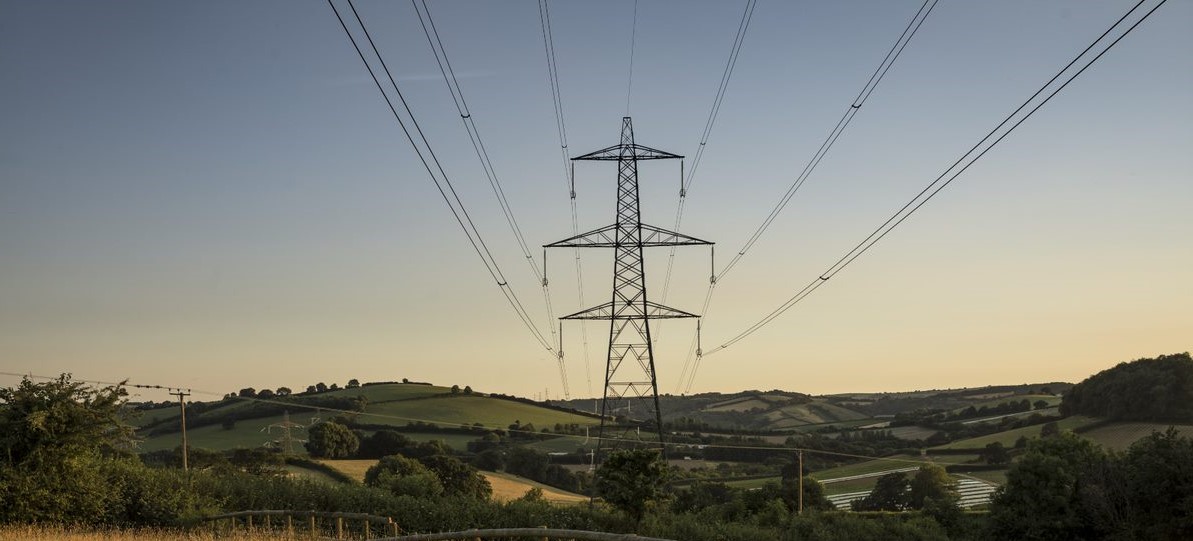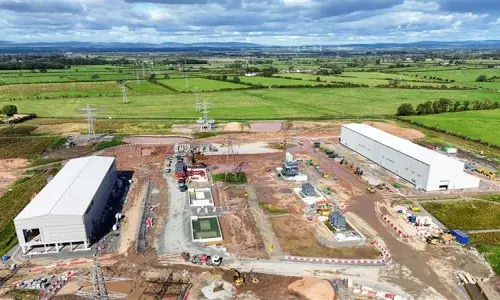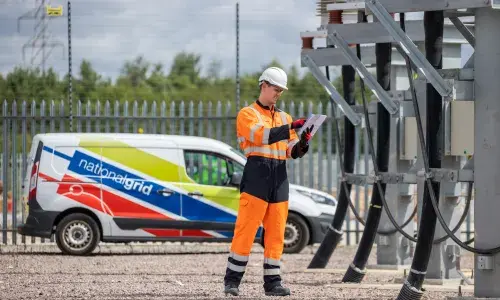
National Grid granted nearly £1m from Ofgem to fund eight net zero innovation projects
- National Grid’s electricity transmission and distribution networks have been granted nearly £1m from an Ofgem scheme for eight innovation projects.
- Projects include investigating technology to increase power flow capability on existing overhead lines, and exploring using electric vehicles to help restore power supplies to vulnerable customers in the event of an outage.
- The proposals were submitted to Ofgem as part of a scheme to encourage innovation and help transform the UK’s energy systems in line with net zero targets.
Eight National Grid-led projects exploring innovation in the electricity transmission and distribution networks have been given the green light to progress to the first ‘discovery’ phase of Ofgem’s Strategic Innovation Fund (SIF) programme.
The ambitious innovation projects will provide critical learnings and research to help inform the future development of a net zero energy system at the same time as delivering significant benefits to consumers.
National Grid Electricity Transmission has been awarded £396,000 for three projects that will help develop a net zero electricity network, including: investigating technology to increase power flow capability on existing overhead lines; development of a long-term strategy to remove electrical insulating gas sulphur hexafluoride (SF6) from the network; and, a project to assess whole energy system resilience.
National Grid Electricity Distribution has been awarded £500,000 for all five of the projects it applied for through the fund, one of which will investigate using electric vehicles to help restore power supplies to vulnerable customers should there be a power cut.
Find out more about the difference between our transmission and distribution networks
The other four projects will explore the impact of thermal energy efficiency on network loads, the use of digital solutions to support regional network planning, flexibility opportunities across different utilities and the role of digital technologies in developing a local smart energy system.
National Grid’s electricity distribution business will also be collaborating on a further four SIF projects – two with Wales & West Utilities and two with the National Grid Electricity System Operator.
Nicola Todd, Head of Strategy and Innovation at National Grid Electricity Transmission, said: “It’s great to see National Grid’s networks leading the way with the sort of ambitious thinking needed to tackle some of the biggest challenges in energy. This funding will help drive progress on a raft of innovative projects, from new technologies to boost network capacity, to how we reduce our dependency on the greenhouse gas SF6.
“Work on these initiatives is helping to shape the future of Britain’s energy networks and accelerating the transition to net zero, at lowest cost to consumers.”
Jenny Woodruff, Innovation Team Manager at National Grid Electricity Distribution, said: “We are thrilled that all our projects applications were approved as this is our first experience of SIF. We are eager to crack on with the projects that are very diverse and between them cover a wide range of ways that we can help reach net zero. We are also excited to be working with new project partners which often brings new insights.
“The discovery phase will allow us to test key assumptions and carry out the early work necessary to firm up our plans for the alpha and beta SIF phases where we can develop the initial ideas into prototypes and full-scale trials.”
Full details of the funding for Ofgem’s SIF scheme, which is managed in partnership with Innovate UK, can be found on its website.
Full list of projects
National Grid Electricity Transmission
Superconductor OHLs
The project will explore the opportunity for deploying high capacity, superconducting overhead lines in the UK, gauge technical and economic limitations, and roadmap a means to scale adoption for customer benefit. Project partners: VEIR, University of Manchester, University of Strathclyde, Frazer-Nash Consultancy.
SF6 replacement strategy
To develop an economic, efficient and holistic replacement strategy for SF6 that will support Britain's ambition to facilitate a net zero and resilient energy system. Project partners: University of Manchester, SHE Transmission, DNV.
WELLNESS
The project will develop a standardised approach to embed resilience into whole energy network decision making. Project partners: University of Manchester, University of Cyprus, Imperial College London, Electricity North West, Arup.
National Grid Electricity Distribution
EV Respond
EV Respond will investigate methods to restore vulnerable customer supplies during a power cut, by making use of Electric Vehicles. The project will consider how this can be managed and coordinated by means of an app, will look at how connections can be carried out, and will consider the benefits/drawbacks when compared to the use of diesel generators.
PIONEER (Proportional Investment of Networks in Energy Efficiency Retrofit)
Proportional Investment of Networks in Energy Efficiency Retrofit (PIONEER) aims to develop commercial models by which the DNOs can provide funding for thermal energy efficiency (EE) measures and to demonstrate through pre and post retrofit monitoring the impact these measures have on network loads.
PRIDE (Planning Regional Infrastructure in a Digital Environment)
Planning Regional Infrastructure in a Digital Environment (PRIDE) will investigate how we can bring together datasets from a variety of sources on a single platform to support regional planning. Working with West Midlands Combined Authority and Advanced Infrastructure, PRIDE examines how local decision making could be enabled by a digital twin, and what new supporting models and datasets would be required.
Shifting Currents
Shifting Currents will build on the FLOWERS NIA feasibility study to investigate how to embed flexible operation into water utility assets and develop whole system efficiency. It aims to develop mechanisms to shift the timing and control of operations to reduce electrical peak demand, lower the carbon costs of water networks and prevent curtailment of renewable generation.
TEED (Tyseley Environmental Enterprise District)
This project is an investigation of how a complex, multi-vector energy system with significant local generation and storage can be developed using a Digital Twin to be optimally resilient and deliver best value to a mixed local community of industry and domestic consumers, alongside ongoing regeneration of the area.



